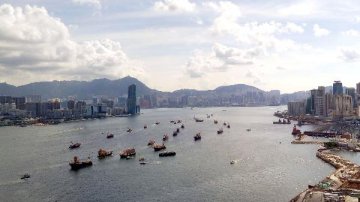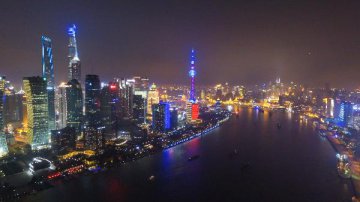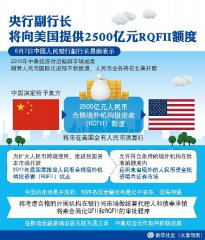
Recently, quota under the Renminbi Qualified Foreign Institutional Investors (RQFII) scheme for Hong Kong increased from 270 billion yuan to 500 billion yuan. It is widely believed by the interviewees from Hong Kong institutions that this is another favorable policy for both mainland and Hong Kong capital markets following the launch of Bond Connect.
However, it is learnt by the reporter that although the total quota with 270 billion yuan has been used up by 97 Hong Kong institutions, the utilization rate of current quota is not high. Whether to apply for additional quota will depend on business development of the institutions. Meanwhile, they also hope regulators to introduce relevant supporting measures, like expanding investment scope of RQFII, so as to match with the increasing quota.
Application for quota depends on business development
The latest statistics from State Administration of Foreign Exchange (SAFE) showed that the quota for 79 RQFIIs in Hong Kong totaling 270 billion yuan has been used up as of June 29. This figure was only 20 billion yuan in early stage for the pilot of the scheme in 2011. The reason behind increase in RQFII quota reflects that overseas investors’ demand for investing in yuan-denominated assets is growing.
The People’s Bank of China (PBOC), or China’s central bank, announced on July 4 that the State Council had approved to raise quota for RQFII in Hong Kong to 500 billion yuan. Based on statistics on June 29, there were 184 RQFIIs across the world with total quota amounting to 543.104 billion yuan. The new quota for RQFII in Hong Kong is very close to the previous quota for the globe.
“It is believed that the increase in quota for RQFII in Hong Kong can attract more international investors and manifest resolution in opening up of mainland capital market. In addition, it will also play an important role in consolidating central position of offshore yuan in Hong Kong.” A person at Hong Kong branch of a fund company told the reporter.
Whether will institutions apply for additional quota after the total quota increases? The interviewees indicated that it depends on the development of their businesses. However, the utilization rate of RQFII quota is not high, which is the reason why most institutions don’t apply for additional quota.
A source close to CSOP Asset Management Limited disclosed that the institution didn’t intend to apply to increase quota. The current utilization rate of RQFII quota is not high, while it reached 100 percent before. Overseas institutions’ demand for investing in exchange traded fund (ETF) of A shares surged significantly in 2014, making RQFII quota tight. The channel for subscribing CSOP FTSE China A50 ETF, the company’s largest RQFII ETF which can be directly invested in ETF of A share, was once shut down as quota was run out. “We had to write report to apply for quota every month at that time,” the source recalled.
Why isn’t the utilization rate high? The interviewee viewed that there are two reasons. One is that there are more channels for overseas investors to invest in mainland capital market due to introduction of Shanghai-Hong Kong Stock Connect and Shenzhen-Hong Kong Stock Connect. The other one is that some clients redeemed the assets after gaining profits.
The above-mentioned source cited CSOP FTSE China A50 ETF as an example. This fund tracks FTSE China A50 index. The index is composed of 50 A shares with the biggest market value, covering the underlying stocks in the two stock connects. Therefore, when the RQFII quota is in short supply, managers will swap out the quota through the two stock connect channels so as to invest in bonds and other assets. On the other hand, after gaining abundant profits, some investors choose to redeem some funds, which means making way for quota.”
Investment range expected to expand
“The idle RQFII quota does not mean that overseas investors are not interested in the mainland market.” A Hong Kong market participant indicated that as a result of the increasing interconnection between the capital markets of the mainland and Hong Kong and the inclusion of A shares into the MSCI Emerging Markets Index, overseas investors are paying more attention to the mainland capital market.
As a matter of fact, shortly after MSCI’s inclusion of A shares into the Emerging Markets Index, CSOP A50 ETF recorded a net subscription of 1.5 billion yuan on June 27 and it has been increasingly active in following days. On the same day, CSOP China 5-year Treasury Bond ETF recorded a net subscription of nearly 700 million yuan.
However, after a small peak of subscription, the performance of CSOP A50 ETF has been stable recently. “Investors choose to wait and see due to the recent performance of the A-share market. Overseas investors are waiting for better opportunities.” The above person indicated.
“It will be late to apply for quotas when market conditions are improved.” For institutes cannot obtain quotas or the quotas are too small quotas, they will apply when they need them.
In addition, it is learnt that many institutional clients hope that the investment scope of RQFII can be expanded to the National Equities Exchange and Quotations (NEEQ), commodity futures and the primary market for bonds to coordinate with the expansion of the overall quota.
Translated by Viivan






















Latest comments